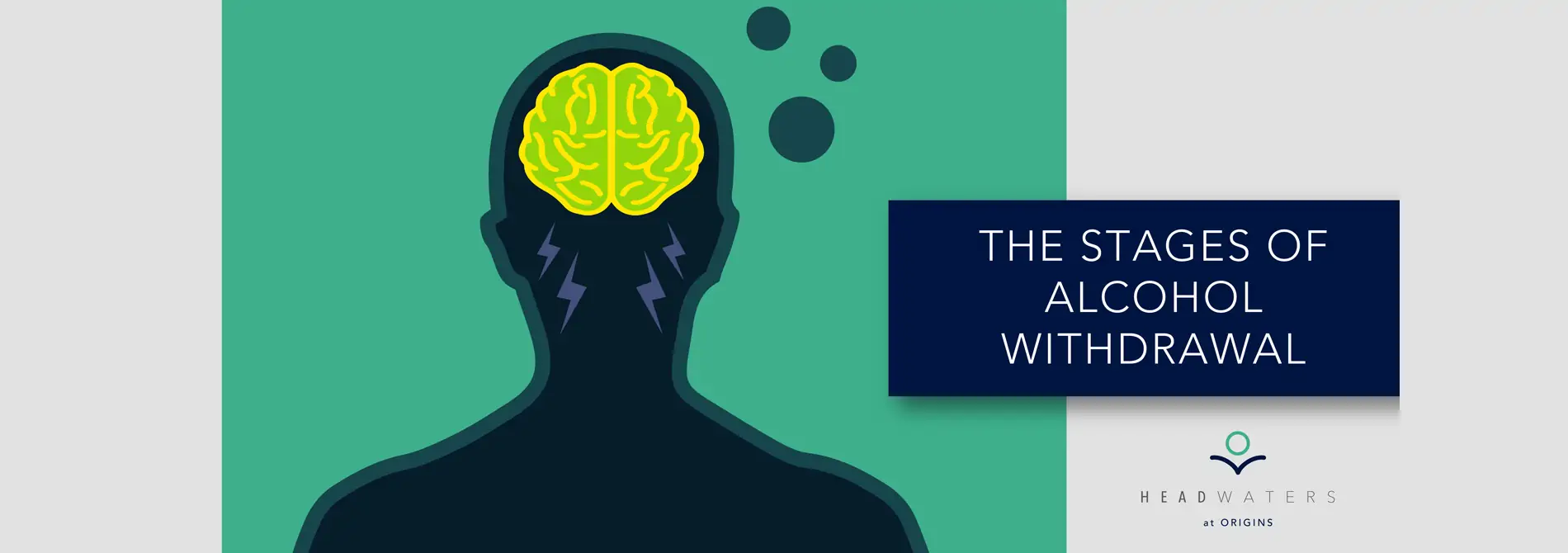The desire to quit drinking can feel overwhelming with the uncertainty of what happens after you take that last drink. Anyone who’s tried to stop but felt like they couldn’t go more than a few hours knows that feeling. Facing and enduring withdrawal is not an easy task. It is an essential one to start to get sober, though. So today, let’s talk about alcohol withdrawals, how long they can last, and how to experience them with the least amount of mental, emotional, and physical risk.
How long does alcohol withdrawal last? Alcohol withdrawal begins hours after a person who regularly consumes alcohol takes their last drink and can last for several days or longer. Two factors affecting withdrawal’s duration are the amount of alcohol consumed regularly and use of other substances. How long does it take to recover from alcohol withdrawal? Recovering from alcohol withdrawal can take several days or more. Also, it can be affected by medical history, such as high blood pressure or co-occurring mental health disorders.
If you or a loved one need help, call our admissions team today at 561-270-1753.
What is an alcohol withdrawal?
When drinking consistently, alcohol never fully leaves the body. There is always some present in the bloodstream. Alcohol withdrawal begins hours after a regular drinker stops drinking and the body begins to process what’s present in your bloodstream.
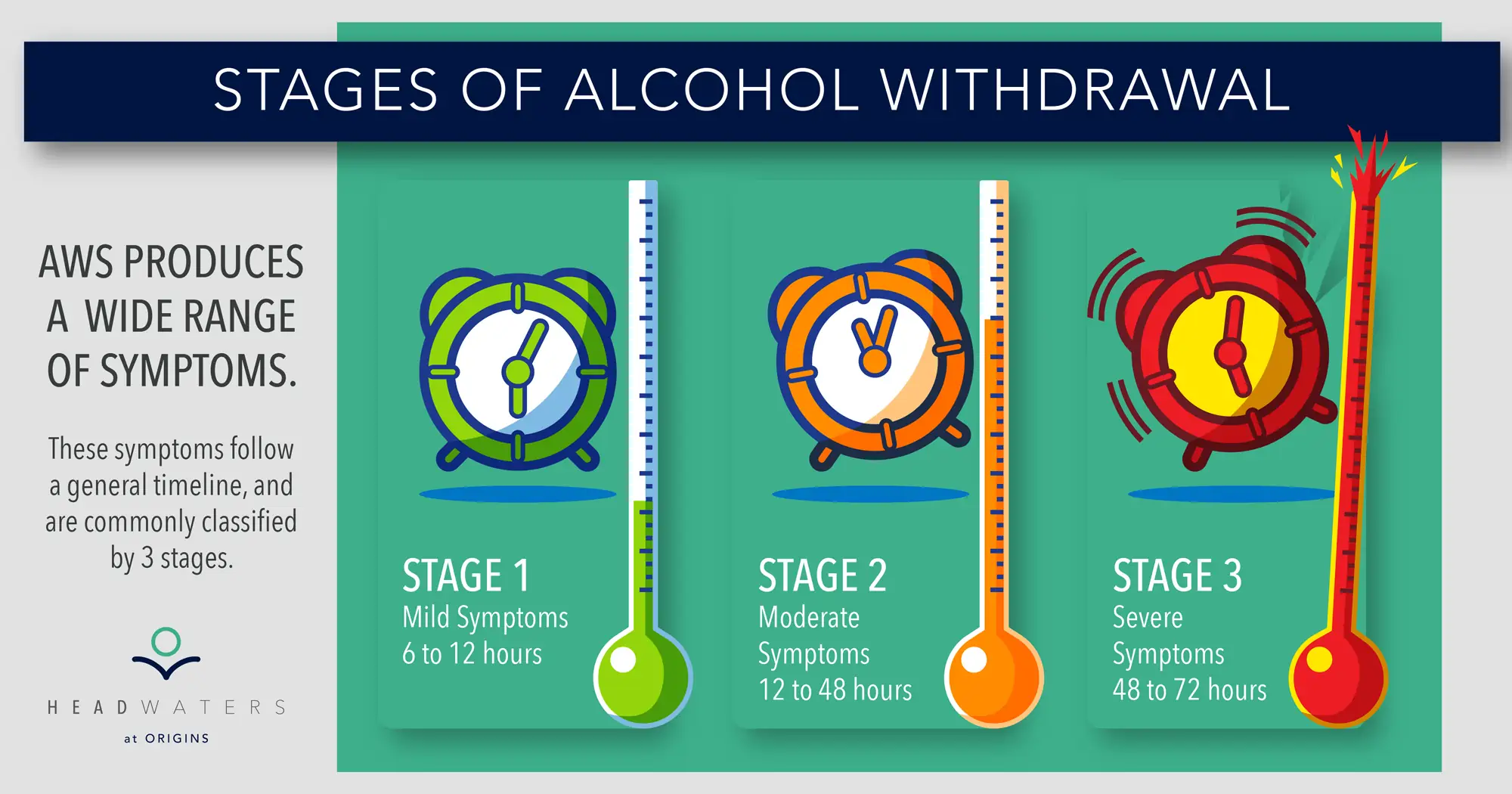
STAGE 1
The withdrawal comes in stages, and the first stage starts several hours after the last drink. These symptoms are generally mild, although uncomfortable. The person experiencing withdrawal may begin to have a headache, crave another drink, and show hand tremors. Their pupils may appear dilated. They may feel nausea or a loss of appetite. Mood changes can begin.

STAGE 2
Withdrawal symptoms can intensify around 12 hours after the last drink. Blood pressure can go up with an irregular heartbeat. Mental confusion and hallucinations may begin. Difficulty breathing is another common withdrawal symptom. Seizures may occur as well. This is a stage that can last up to a couple of days and medical supervision becomes essential due to the change in vital signs.
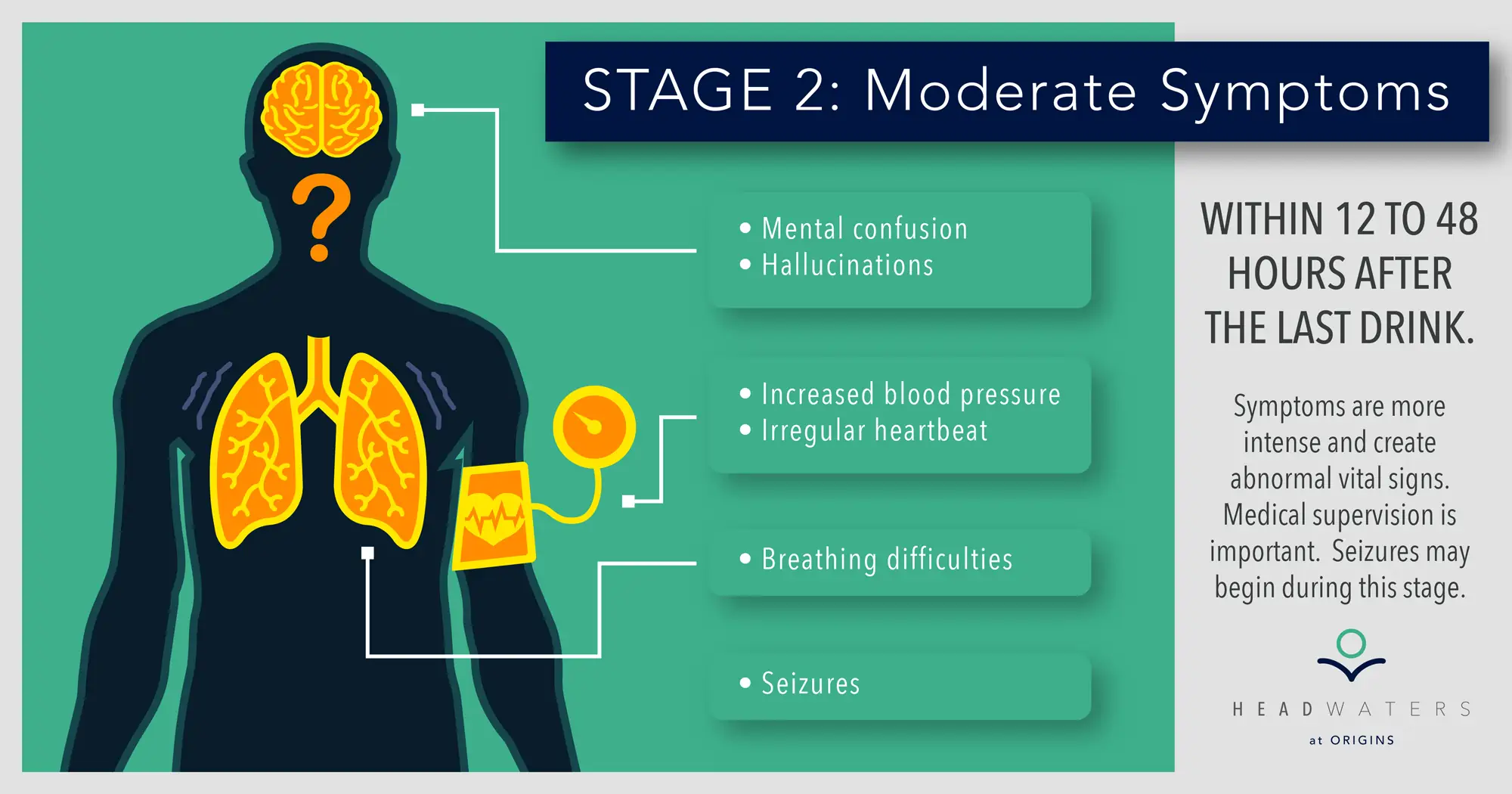
How long does an alcohol withdrawal last?
The intensity and duration of alcohol withdrawal will be affected by several variables. How much a person drinks, their medical history, and their use of other drugs are some of those factors. After 48 hours without a drink, the risk to their health becomes critical as they move into the next stage of withdrawal.
STAGE 3
Stage 3 can last up to 72 hours or more after the last drink was consumed. This stage is the most dangerous without medical supervision as a person can begin experiencing delirium tremens (DTs) and a heightened risk of seizures. Other withdrawal symptoms during this period of time can include agitation, fever, and hallucinations.
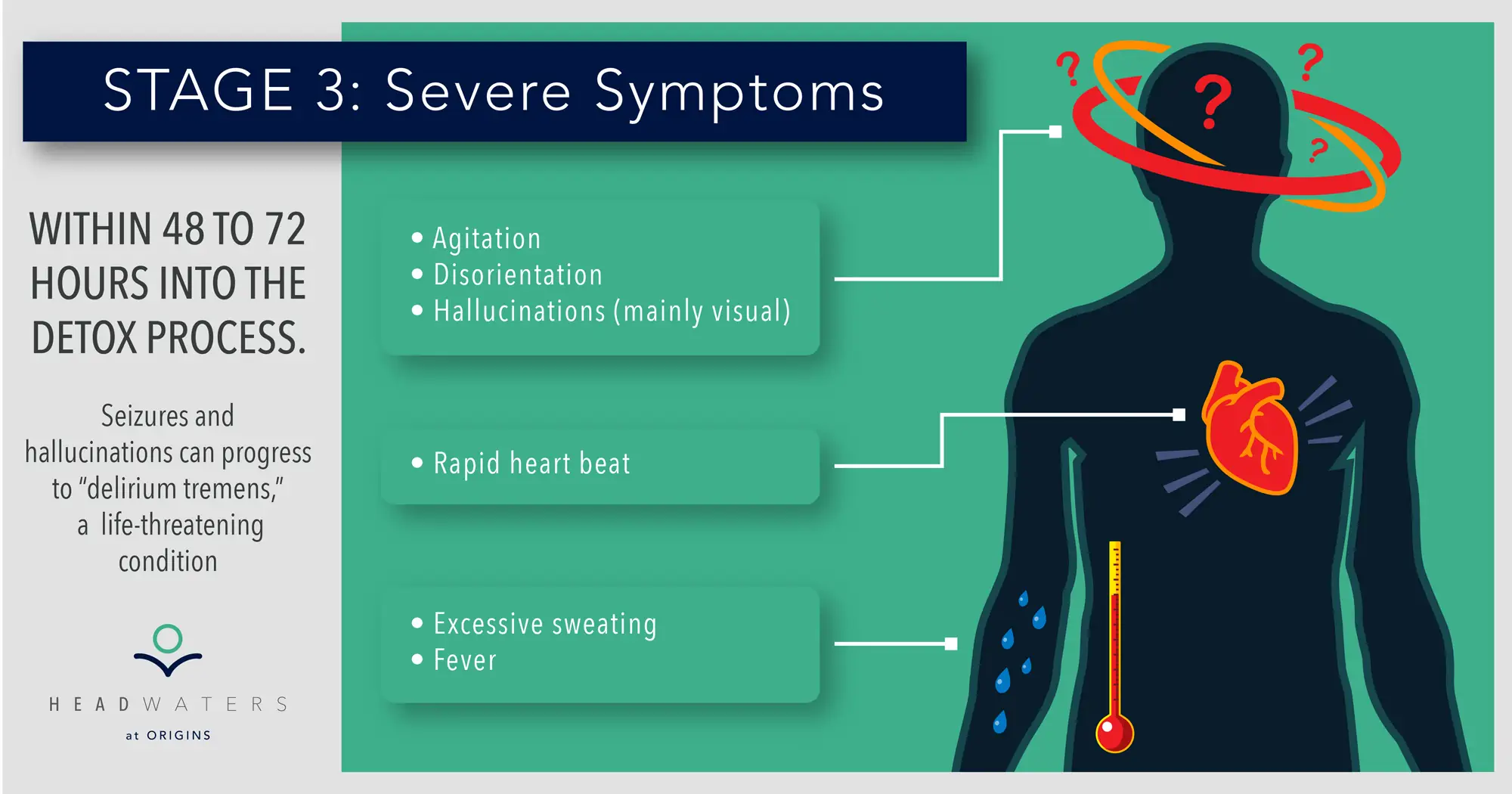
These stages are part of an acute withdrawal. A longer period of time for withdrawal is known as a protracted withdrawal. This can last for weeks or months. Some of the same acute symptoms can continue and be joined by new symptoms.
It’s important to note that there is no set time limit for withdrawal symptoms for every person. Even the same person can experience different durations of withdrawal at different times in their life. The takeaway here is the need to get medical care as soon as possible prior to withdrawal symptoms beginning or shortly after they begin.
What to Do When You or a Loved One Is Going through Alcohol Withdrawals
Before alcohol withdrawal begins, know it is inevitable that symptoms will occur. There is no way to predict which symptoms a person will experience or their level of severity. Even mild symptoms can quickly become intense and unmanageable to handle at home.
The first step can be set up in either planning for withdrawal or responding to it. This step involves getting yourself or your loved one to a facility that offers medical supervision during detoxification. As alcohol withdrawal can be life-threatening, medically supervised detox helps minimize the health risks during the process. They may offer treatment for dehydration, nausea, and seizures. A focus on proper nutrition for the client can also begin during detox.
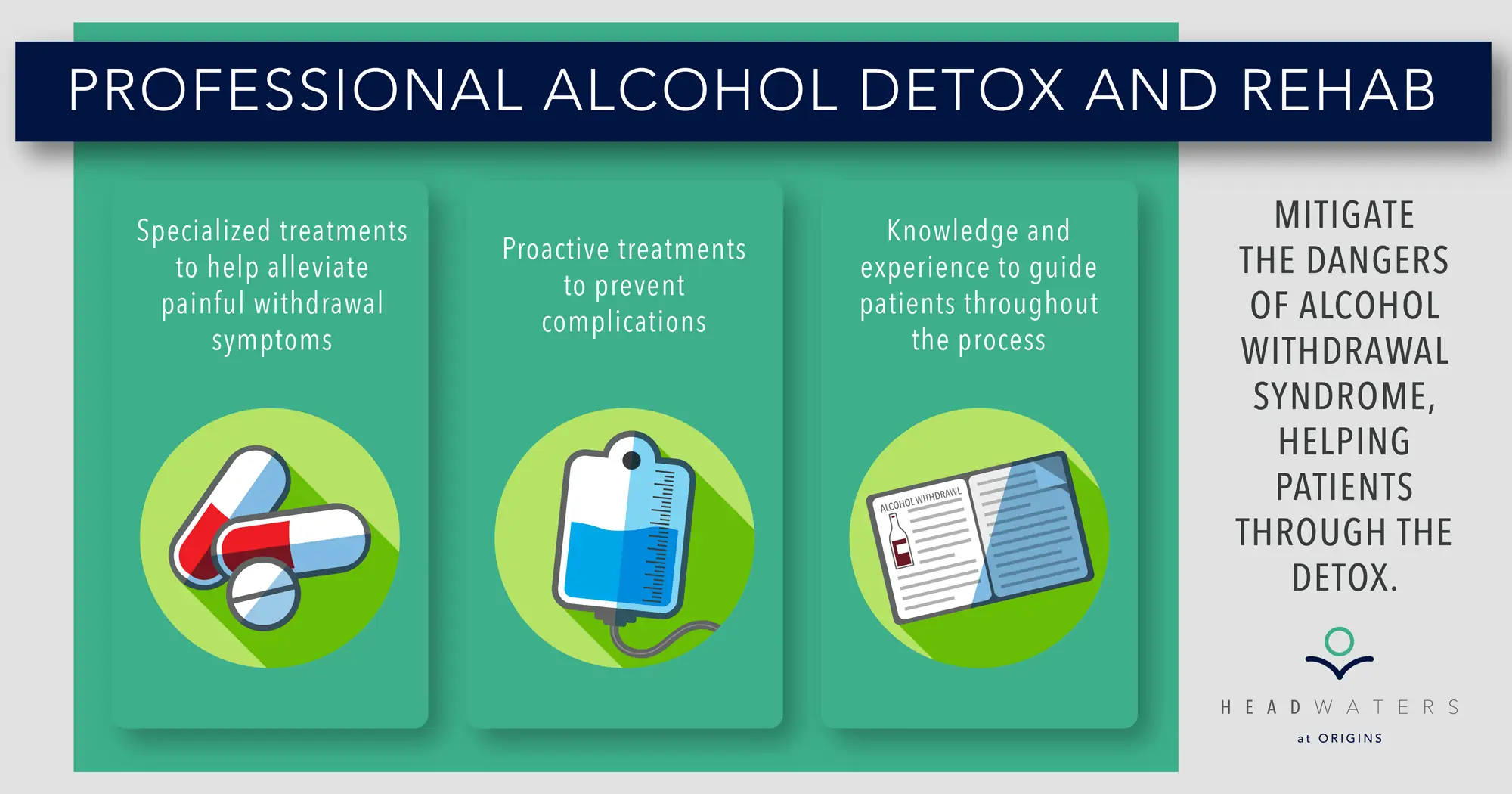
A longer plan for recovery will be valuable as well. Checking treatment options for alcohol use disorder in your area can begin anytime. Confidential treatment in a private setting is available for high-profile professionals and executives.
Headwaters is a well-known care provider offering a range of treatment programs targeting the recovery from substance use, mental health issues, and beyond. Our primary mission is to provide a clear path to a life of healing and restoration. We offer renowned clinical care for addiction and have the compassion and professional expertise to guide you toward lasting sobriety. For information on our programs, call us today: 561-270-1753.

